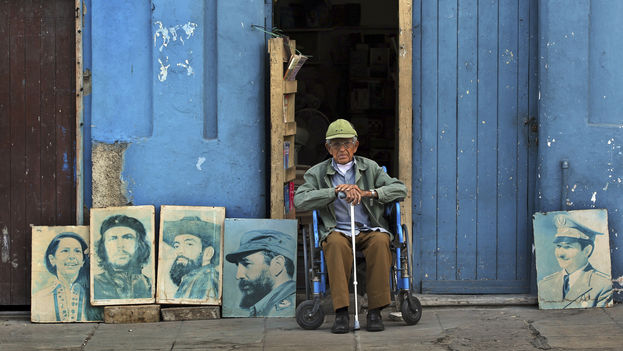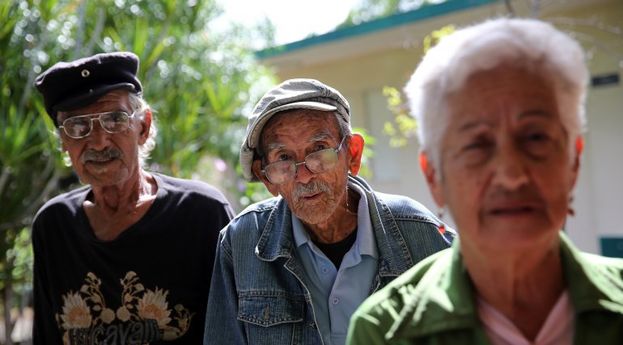
![]() 14ymedio, Reinaldo Escobar, Havana, 25 February 2017 — Many of those who experienced the first moments of the Revolution when they were between the ages of 14 and 20, became literacy teachers, young rebels, militiamen, cederistas (supporters of the Committees for the Defense of the Revolution) and federadas ( ‘federated’, i.e. supporters and activists of the Revolution). They overachieved every challenge and climbing five peaks or walking 62 kilometers ended up being credentials of high social value.
14ymedio, Reinaldo Escobar, Havana, 25 February 2017 — Many of those who experienced the first moments of the Revolution when they were between the ages of 14 and 20, became literacy teachers, young rebels, militiamen, cederistas (supporters of the Committees for the Defense of the Revolution) and federadas ( ‘federated’, i.e. supporters and activists of the Revolution). They overachieved every challenge and climbing five peaks or walking 62 kilometers ended up being credentials of high social value.
It was common to see them with a pistol at their belts bragging about their exploits at the Bay of Pigs or cleaning up the Revolution’s opponents in the Escambray Mountains. It was the time of the Schools of Revolutionary Instruction, of a Marxism manual tucked under one arm and simplified atheism. In those prodigious years of the 1960s they embodied the true fervor of youth and, consequently, an ideological prejudice against the elderly took root.
A poet, then (and still) unknown, would write fiery verses under the provocative title of If the old woman in front took power where he described in the purest colloquial style the retrograde measures that would be dictated by this hypothetical lady, probably bourgeois and resentful, in a word: a gusana, a worm. In fact the term “old worm” already seemed a redundancy in the mouth of those tropical Red Guards… But time passed and many vultures flew over monument in the Plaza of the Revolution.
A new generation, with very different goals, today launches its prejudicial darts against anyone over 70
A new generation, with very different goals, today launches its prejudicial darts against anyone over 70. But they no longer use the expletive “old worm,” instead they choose its diametrical opposite: “little old communist.”
A diminutive, as any good linguist knows, can be loaded with tenderness or contempt. It is not the same to say “granny” as it is to say “little teacher.” And this epithet of “little old man,” or woman, wrapped in a false commiseration falls with its full weight of impairment on the line of retirees who get in line early in the morning to buy the newspaper Granma, or on any gray-haired person always ready to utter some admonition to the teenagers who saunter out of the high schools with their shirts untucked.

Destiny has these intrinsic twists. For a boy who spends most of his day thinking about how to leave the country, anyone who passed up a historic opportunity to leave this shipwrecked island must be an accomplice, if not the one personally responsibly for all his angst.
If there is a space for a smile after the macabre grimace of death, those “old worms” must be amusing themselves in the face of the painful spectacle offered by their former dentists, who no longer dread the future, but rather ruminate on a defeat they do not want to recognize.
